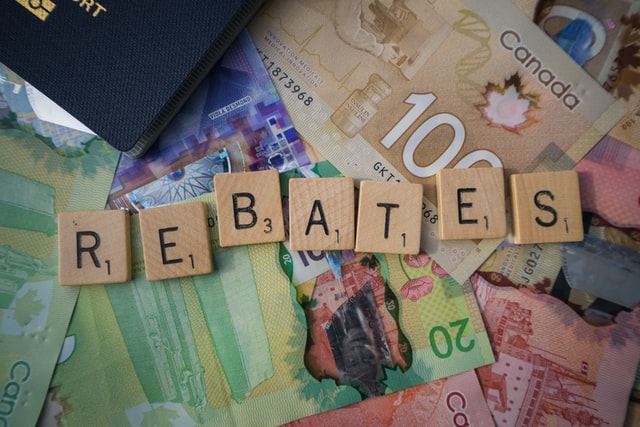California has long been having a dislike for taxes and a liking for cars. Few other cultural touchstones have stayed in California for such a long time as the above-mentioned things. Both concern a strong sales pitch regarding a happy and enjoyable life in California. Here, it is always best to fuel up now and then as you hit the long, open road ahead.
Clashes between both desires can even reshape Californian elected officials’ political fortunes. It has happened earlier as well as could occur again in view of the recent wrangling about ideas for passing California’s tax revenue to cover vehicle operators’ fuel costs.
Earlier this year, Democratic lawmakers partook in negotiations over a cashback program to counteract the effects of gas rates that have increased the average price to about $6 per gallon. It exceeds the average rate for February 2022 by around one dollar, as per AAA, and the state’s average gas rates of early 2020 spring by $2 or so.
Assemblywoman Cottie Petrie-Norris stated that the prices are not good for the voters in California. Petrie-Norris leads a new group of lawmakers that pushes for a rebate of $400 to all taxpayers in California. The group is trying to help the taxpayers with the right solutions.
The solution of the group would undoubtedly offer necessary fuel to its political campaigns as well. Many of the lawmakers who approved the rebate proposal will participate in California’s redrawn district elections later this year. Many districts were redrawn earlier this year in a way that could bring some uncertainty to the election season. Two of those lawmakers are pursuing open seats in Congress. Everyone would gain from supporting drivers as well as low-income and middle-income people in California.
Assemblyman Jim Cooper runs for the position of Sheriff of Sacramento County, and he said that people are unhappy with the higher prices.
Old And New Debates
The effort temporarily sidesteps the consideration of whether the state-levied fuel taxes in California are too high. GOP members seek to be relevant in an American state in which they have no clear political branding and are outnumbered. They have been affecting Governor Gavin Newsom of California and other Democrats very badly as the latter refused to contemplate even a temporary ban of the around 50-cents-a-gallon excise tax for gas.
Assemblyman James Gallagher tweeted that the Democrats in the Capitol who did not suspend the tax or remove 50 cents for each gallon have a difficult time elucidating their vote. Gallagher added that people require relief and are not buying into the excuses of the Democrats.
That said, Newsom proposed tax relief as part of his budget earlier this year in a bid to cancel a planned increase in California’s levy in the summer. Democratic lawmakers urged a more extensive relief effort while rejecting Newsom’s proposal. However, they might encounter some complex political maneuvers as some of their colleagues push for a rebate-like proposal for one state gas fill-up weekly for a year without taxes.
Those kinds of offers will not come cheap. Earlier this year, the Legislative Analyst’s Office approximated that reducing 1 cent from the excise tax for gas in California would mean a $175 million reduction in transportation funds. The demand for a rebate of $400 for taxpayers, including people without cars, could cost up to $9 million, which may be paid from California’s tax surplus.
Now, the consideration is whether California’s citizens feel they deserve or need the money to a greater extent than the government.
A 2003 furor about cars and taxes toppled the then Gray Davis administration. Governor Newsom increased the yearly vehicle licensing fee by threefold. No matter what weaknesses he had before that decision, those were no big deal as compared to the anger over the car taxes in the state under Arnold Schwarzenegger. Actor Schwarzenegger won the 2003 recall election over Davis. Back then, Schwarzenegger stated that California would run on eight-cylinder engines, instead of one cylinder engine that it does now.
Rob Stutzman, the then deputy chief of staff to California’s Governor Schwarzenegger, stated that constituents considered the fee increase nothing beyond a way of papering over administrational debt. Stutzman stated that taxing the vehicles of California’s citizens is like taxing appendages.
It is unlike the notion of making roads better. More recent Democrats have discovered ways of detoxifying the dangerous combination of taxation and driving. Governor Jerry Brown successfully led a 2018 campaign to preserve a sharp hike in California’s gas tax from the Legislature to improve repairs on its bridges and roads.
After the election, Brown said that Californians who did not repeal the gas tax hike in 2017 voted to spend on what they require. Brown reinforced the political message with signs that read “Senate Bill 1: Rebuilding California” at statewide highway construction locations.
However, as several motorists find gas races to be beyond reasonable, the politics is likely to change. Fairness is an issue that Democratic Party members appear to have focused on as they rejected Republican calls for a so-called gas tax loophole.
A political weapon that Democratic Party members could use for their 2022 election campaigns is recurring accusations about rigged gas rates. Attorney General Rob Bonta oversees an investigation into fuel rate fixing in the state that earlier AG Xavier Becerra launched. Bonta and Newsom have not highlighted the investigation in the recent past while others insist that there has been a mysterious surcharge in the rate of gas per gallon for a long time. For your information, Bonta is likely to face the most difficult campaign for any Democratic hopeful in California this year.
Not all incumbents this year show the kind of reluctance to highlight the issue as Newsom and Bonta have shown. Senator Alex Padilla stated that he would sponsor the bill to levy a federal government tax on big oil companies. In turn, the tax would create a taxpayer rebate per quarter.
